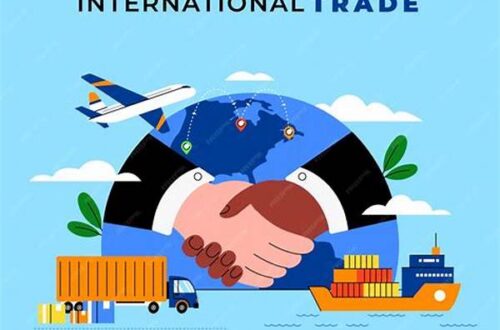The concept of sovereignty, defined as the full right and power of a governing body over itself without any interference from outside sources or bodies, faces heightened scrutiny in today’s globalized landscape. The sovereignty of nation-states is increasingly challenged by complex international dynamics, where global governance, economic interdependence, and transnational issues such as climate change, terrorism, and cyber threats have necessitated multilateral cooperation. Despite the foundational role sovereignty plays in international law, the demands for global collaboration exert significant pressure, complicating the ability of states to independently determine and execute their policies.
Challenges to National Decision-Making
In the context of globalization, nation-states encounter mounting challenges to maintain their sovereignty under international pressure. Global governance organizations, such as the United Nations, the International Monetary Fund, and the World Trade Organization, impose frameworks and rules that limit national discretion on issues ranging from human rights to trade practices.
Economic interdependence further complicates sovereign autonomy. In an era marked by transnational supply chains, financial markets, and digital transactions, the decisions of one country can have significant repercussions across borders, forcing states to consider international impacts in their domestic policymaking processes. Meanwhile, transnational threats like terrorism necessitate collaborative security measures that may infringe upon national sovereignty. Consequently, states often find themselves balancing the imperative to preserve sovereignty with the need for international cooperation, highlighting the delicate interplay of power in today’s world.
Implications of Global Governance
Sovereignty under international pressure is an evolving paradigm, particularly under the auspices of global governance institutions. These entities encourage compliance with international norms and standards that sometimes infringe on national legislative autonomy. Sovereign states are compelled to align domestic laws with internationally accepted practices, which may conflict with local customs and priorities.
Moreover, economic dependencies unfold a complex scenario. Countries invest in bilateral and multilateral agreements, resulting in enhanced relations but also in shared obligations that occasionally conflict with sovereign policymaking. For instance, nations must adhere to trade agreements that can dictate terms unfitting for localized conditions, demonstrating sovereignty under international pressure.
In environmental spheres, global treaties also exert substantial influence. States are often bound by international commitments addressing climate change, requiring them to adopt measures aligned with global objectives. This submission to international consensus underscores the prevalence of international pressure on national sovereignties.
The Economic Dimension of Sovereignty
International trade agreements underscore how economic considerations place sovereignty under international pressure. Nations are obliged to follow agreed-upon regulations guiding trade, investments, and tariffs. Such commitments are essential for reaping economic benefits, yet they require forfeiting certain degrees of policymaking freedom, showcasing the inherent tension between economic gains and national independence.
Facing financial crises, countries often seek assistance from international financial institutions, whose support typically comes with conditions impacting national sovereignty. These conditions, intended to stabilize economies and promote sustainable growth, can nevertheless direct internal political changes, restrict domestic economic agendas, and reinforce dependency on global financial networks. Thus, the intricate web of international economic policies continuously tests state sovereignty.
Legal and Political Dynamics
The legal domain is particularly illustrative of sovereignty under international pressure. International laws and treaties obligate countries to conform to standards that may, occasionally, conflict with domestic statutes. For instance, enforcement of human rights treaties may demand changes to a nation’s legislative framework, potentially clashing with local traditions or political agendas, thus testing sovereignty.
Environmentally, pressure mounts through obligations to international accords such as the Kyoto Protocol and the Paris Agreement. These require national policies to align with global targets for emissions reductions, sometimes overstepping the country-specific developmental priorities or capabilities and challenging the notion of absolute sovereignty.
1. Human rights frameworks also impose legal obligations impacting civil liberties in alignment with international expectations, illustrating potential conflicts with domestic judicial personal autonomy.
2. Sovereignty is challenged in international conflict resolution, where states may be compelled to seek peaceful solutions through arbitration or intervention, limiting traditional autonomy in self-defense matters.
3. Public health crises highlight how sovereignty is influenced by global health regulations and the necessity of international cooperation to address pandemics effectively.
4. Education policies can similarly face sovereignty under international pressure through international educational standards bodies that recommend curricula reforms.
5. Security collaborations demand mutual defense commitments, sometimes necessitating foreign policy alignments that test a country’s strategic independence.
6. Technological advancements create dependencies on international standards-setting bodies, influencing domestic tech policies.
7. The humanitarian sector often requires nations to adapt to international protocols, thereby encroaching upon national jurisdiction in crisis management.
8. Cross-border taxes and corporate regulations signal areas where sovereignty faces globalized financial systems, requiring international compliance.
9. Developmental aid from international organizations can dictate policy directions, overruling domestic priorities under specific conditions.
10. Political sovereignty can be tested with international election standards monitoring, which ensures democratic integrity but may be perceived as interference in a nation’s electoral processes.
Cross-Border Relations and Negotiations
The sovereignty of nations is undoubtedly put to the test during cross-border negotiations, where compromises often reflect the complexity of maintaining state autonomy amidst global demands. While such interactions can foster mutual growth and understanding, they can also reveal how sovereignty under international pressure comes into play when state interests are subjected to international priorities.
Diplomatic engagements frequently require states to conform to global standards or collective decisions. These multilateral dialogues aim to solve shared challenges but occasionally necessitate sacrifices on national interests, highlighting the balancing act that countries must navigate. Here, sovereignty is nuanced, portrayed not only in the preservation of independence but also in the strategic alignment with broader, ostensibly beneficial international frameworks.
National Identity and Cultural Integrity
Nations face the dual objectives of safeguarding sovereignty while integrating into an interconnected global community. Sovereignty under international pressure highlights the tension between maintaining national identity and cultural integrity against the backdrop of sprawling international influences. States are tasked with preserving their unique cultural, social, and political ethos, an endeavor bolstered by sovereign rights yet perpetually challenged by globalization’s homogenizing forces.
Cultural policies may be obligated to comply with international conventions aiming to protect cultural heritage. The reconciling of these external mandates with intrinsic identities requires adept policy formulations that respect cultural uniqueness while acknowledging the inevitability of some degree of external influence. This dual commitment underscores the complexity of sovereignty in a world where international interdependence is increasingly the norm.
Summary: Toward a Recalibrated Sovereignty
In the contemporary geopolitical environment, the notion of sovereignty under international pressure is both compelling and multifaceted. It transcends the traditional boundaries of absolute state control, embracing a more dynamic and elastic understanding of sovereignty that accommodates the realities of international collaboration. While the foundational principle of sovereignty remains crucial, its expression must evolve to reflect the demands of a rapidly changing world.
As states navigate the intricacies of international relations, sovereignty under international pressure necessitates a recalibration of diplomatic strategies and domestic policies. This balance, albeit challenging, is essential for fostering a cohesive global order that respects national prerogatives while promoting collective progress. Such an evolution of sovereignty ensures that nations retain their core independence while participating actively and responsibly in the broader global discourse.





